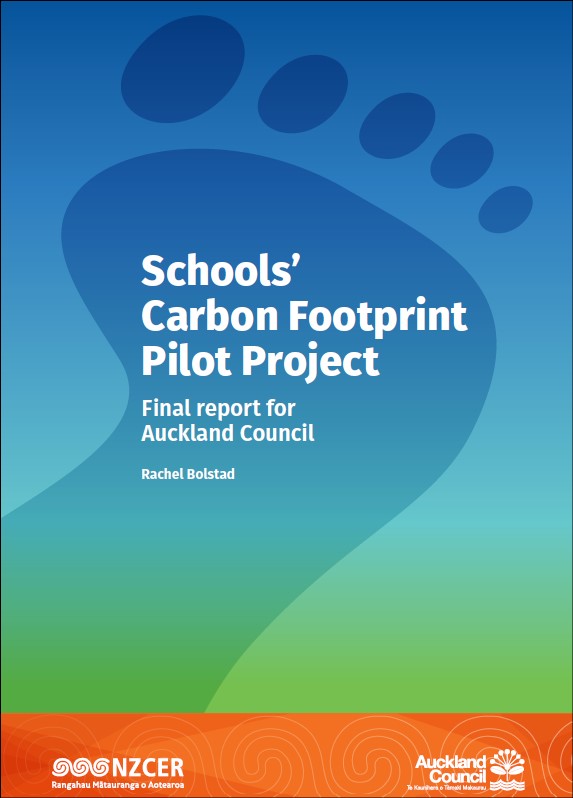Schools’ carbon footprint pilot project report
Author:
Rachel Bolstad, New Zealand Council for Educational Research, NZCERSource:
Auckland Council Sustainable Schools Team | New Zealand Council for Educational ResearchPublication date:
2022Topics:
EnvironmentSchools’ carbon footprint pilot project. Final report for Auckland Council
Summary
Auckland Council’s Sustainable Schools team supported 10 Auckland schools to pilot a school carbon footprint calculator between June and November 2021. The New Zealand Council for Educational Research (NZCER) carried out research for Auckland Council, to build knowledge about how schools can use a school carbon footprint calculator, and what support, advice, and resources schools need to use it effectively.
Although the pilot period was affected by covid-19 lockdown, the findings of this pilot suggested that:
- there is interest and appetite within schools to do carbon footprinting to support student learning and action-taking
- school staff could see how its use could be integrated with school-wide environmental and sustainability activities led by students
- some schools were more ready than others to connect a carbon calculator to their existing school-wide practices or classroom curriculum
- some initial support is needed to build staff confidence and capability to use a calculator
- schools benefit from access to additional guidance and on-demand support for some of the technical details for data entry and making sense of data outputs
- experienced environmental and sustainability education advisors and facilitators also need initial support, guidance, and encouragement to understand how to use a carbon calculator, and to see how this connects with areas they are already highly experienced in facilitating.
Some participants noted that students’, schools’, and communities’ aspirations to be more sustainable and reduce their carbon footprints were constrained by wider system factors that to change would require government direction, support, and resourcing. A few participants noted that climate anxiety was something to be conscious about and emphasised the importance of demonstrating to learners that adults around them are ready, willing and able to engage with the climate challenge, and work collectively towards solutions.
Future research should build on the findings of this pilot to examine the teaching and learning practices that can be built around school carbon footprint calculation in diverse New Zealand schools, the impacts of these learning experiences for diverse students, teachers, and communities, and the extent to which these can support local, regional, and national climate action and sustainability goals.
*****
See also
Auckland Council website: Te mātauranga mō te ukaukatanga, Education for sustainability
New Zealand Council for Educational Research
